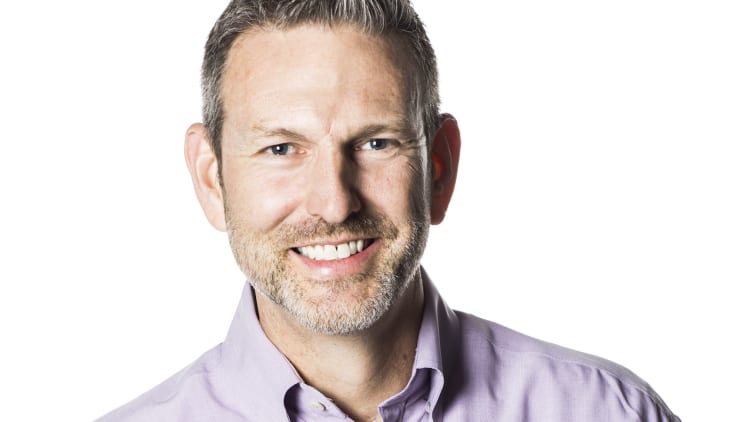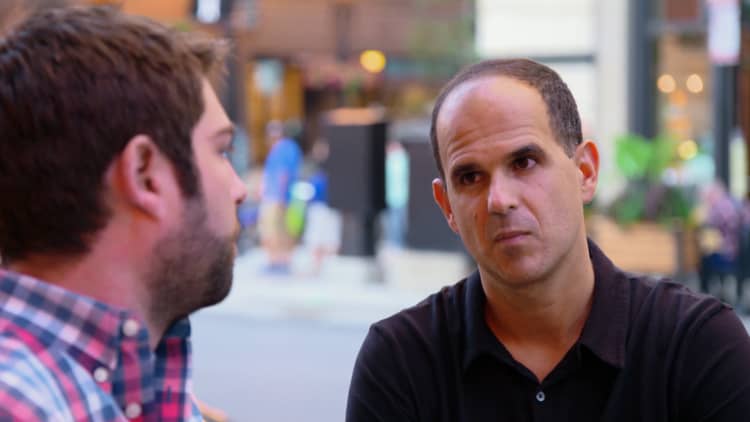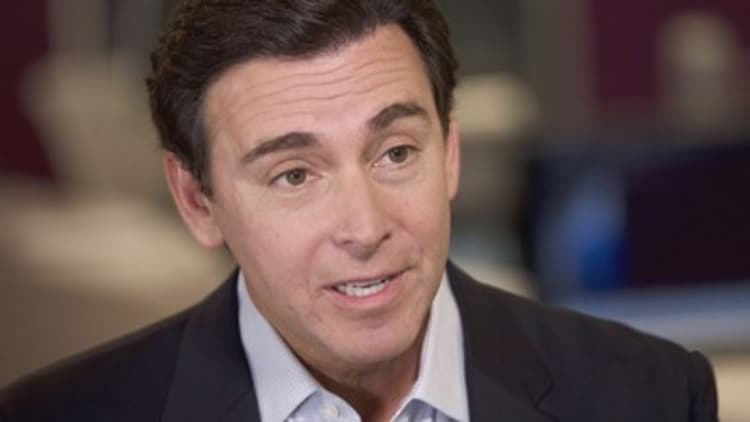Satya Nadella's first job as the third CEO in Microsoft's 40-year history was to get a huge company to unite behind a single goal: to empower every person and every organization on the planet to achieve more. In his latest book, "Hit Refresh," Nadella says he enlisted psychologist Michael Gervais, who devised a simple exercise:
Write down your guiding principle in 25 words or less—and read it aloud to your peers.
There were no initial volunteers, Nadella wrote in his book. Dr. Michael Gervais, a high-performance psychologist and co-founder of Compete to Create, a psychology-based mental training consultancy, had discovered something curious about the group at Microsoft.
The company was stacked with high-performers, but none of them were willing to volunteer for a simple exercise. "The answers were hard to pull out, even though they were just beneath the surface," wrote Nadella. "Fear: of being ridiculed; of failing; of not looking like the smartest person in the room."
No executive, each with so much riding on their shoulders, wanted to look foolish in front of their peers, Nadella writes. This revealed Microsoft's huge problem: It wasn't a lack of creativity or ideas. The problem was that people simply didn't want to share them.
Gervais's one exercise he taught Nadella and the other executives was designed to teach Microsoft these key lessons:

Write your ideas down
His first step was to have every participant articulate what inspired them—oftentimes an idea so nebulous people have trouble defining it themselves. "Everybody has a personal philosophy but very few are able to articulate it," Gervais tells CNBC Make It.
This philosophy can be anything, from "to earn the most money in the company" to "pay off student loans" or "help change and empower the world." (In fact, Gervais's personal philosophy is "Every day is an opportunity to create a living masterpiece.") Writing the philosophy down forces people to "choose what are the guiding principles that help them navigate their choice of thoughts, their choice of words, and their choice of actions."
Notable figures in history, says Gervais, can be summarized in a few words. For example: Martin Luther King Jr. was a civil rights activist pushing for equality (seven words). But more importantly, that sentence contains something intimate and secret: a personal philosophy.
Listen, then understand
Next, Gervais had each participant read their philosophy aloud and have the room listen without judgment. "Without critique," says Gervais. "Listen and understand what the guiding philosophies." This lets the room become familiar with their motivation, what drives them and gives them purpose.

The exercise also makes the speaker vulnerable to his teammates, by sharing something intimate about themselves. "If we're gonna do things that are challenging and difficult together, this is a way to front-load and understand and better interpret where they're coming from," says Gervais. "If I'm like a very process-oriented person, and I like to develop things, I might need you on the team."
Trust
Sharing that personal philosophy makes you vulnerable, says Gervais, and vulnerability develops trust. "There's a pretty simple equation for trust," says Gervais. "It's time multiplied by behavior." The point is to better understand the intent of that person's behavior.
"There are three things as humans we can train," says Gervais. "We can train our craft, our bodies, and our minds." This was developed from watching top performing figures in sports, says Gervais: "What we've learned from world-class athletes is that they train all three."
Microsoft, says Gervais, has deployed this exercise to great effect: Over 30,000 people in Microsoft have gone through the training, articulated their personal philosophies to their peers, and most importantly, learned to trust each other.
Like this story? Like CNBC Make It on Facebook!
Don't miss:



